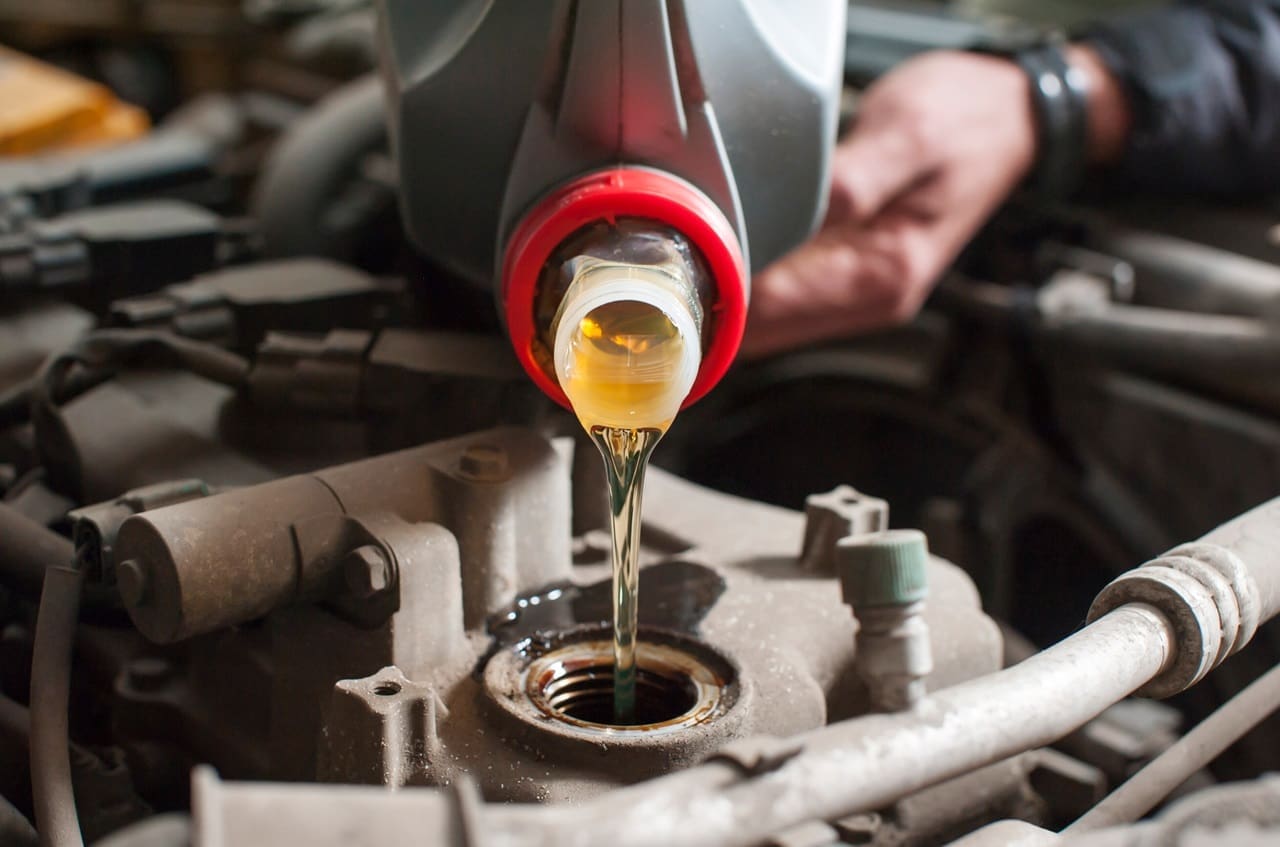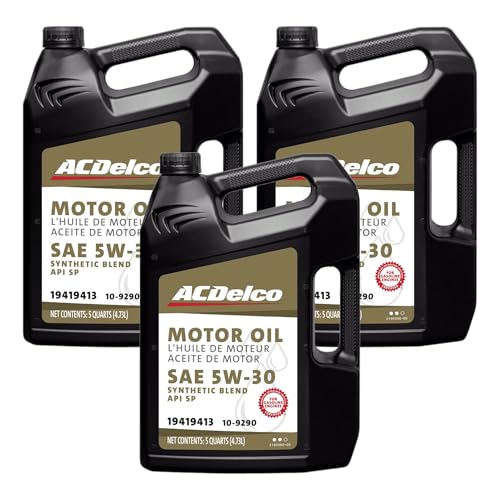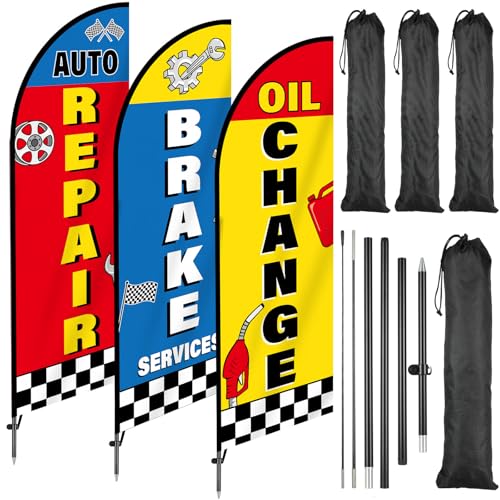That dreaded moment: you’re driving, and the needle on your car’s temperature gauge starts climbing into the red. You immediately think “low coolant,” but what if the problem is something else? Many drivers wonder, can a car overheat due to lack of oil, and the conflicting information out there can be confusing and stressful in an already critical situation.
Yes, a car can absolutely overheat due to a lack of oil. Insufficient engine oil leads to a dramatic increase in friction between moving parts, generating excessive heat that the car’s primary cooling system cannot handle on its own.
This guide cuts through the noise, leveraging a deep analysis of mechanical data to explain exactly how low oil levels trigger an overheating event. We will break down the step-by-step process, outline the critical warning signs you can’t ignore, and provide an immediate action plan to protect your engine from catastrophic failure.

Key Facts
- Oil’s Dual Role: Engine oil is not just for lubrication; it is responsible for dissipating a significant portion of the engine’s heat, acting as a critical partner to your radiator and coolant.
- Friction is the Enemy: The primary way a car can overheat due to lack of oil is through intense friction, which generates heat far beyond the engine’s normal operating range.
- Cooling System Overload: Low oil forces the primary cooling system (coolant and radiator) to become overburdened, as it’s left to manage both normal engine heat and the extra heat from friction.
- Irreversible Damage: Running an engine without oil for even a few minutes can cause catastrophic damage, such as seized pistons and warped cylinder heads, long before the temperature gauge fully registers the problem.
- The #1 Culprit Still Stands: While low oil is a serious cause, the most common reason for engine overheating remains a low level of coolant in the cooling system.
The Direct Answer: Yes, Low Oil Can Cause Your Car to Overheat
You’ve probably heard that low coolant is the main reason a car overheats, and that’s true. It’s the number one cause. But it’s a dangerous mistake to think it’s the only cause. The direct answer to can a car overheat due to lack of oil is an emphatic yes.
Yes, a car can absolutely overheat due to lack of oil. Insufficient oil leads to increased friction and reduced heat dissipation, placing a heavy burden on your car’s primary cooling system.
Think of engine oil and coolant as two essential partners working together to keep your engine’s temperature in check. Coolant is the primary cooling agent, circulating through the engine to absorb heat. But engine oil has a vital secondary role in heat management. When oil levels are dangerously low, one of the partners is missing, and the remaining system can’t handle the extra workload. This is why you can a car overheat due to lack of oil even if your coolant levels are perfect.
So if oil is for lubrication, how exactly does it end up making your engine too hot?
How a Lack of Oil Forces an Engine to Overheat: A Step-by-Step Breakdown
When your car is low on oil, it doesn’t just suddenly get hot. It’s a chain reaction—a sequence of mechanical failures that build on each other, leading to a thermal crisis inside your engine. Understanding this process is key to realizing why the question of can a car overheat due to lack of oil is so critical.
Here’s what happens, step-by-step:
- Increased Friction: Your engine is filled with critical moving parts like pistons, crankshafts, and camshafts spinning at thousands of revolutions per minute. Engine oil creates a microscopic, protective film over these components, allowing them to glide past each other. When the oil level is too low, this film breaks down. Metal grinds directly against metal, creating an immense amount of friction.
-
Massive Heat Generation: Friction generates heat. It’s a basic law of physics. This is similar to how rubbing your hands together quickly generates warmth. Now, imagine that effect amplified thousands of times over with heavy, fast-moving metal parts. This friction generates an explosion of heat that the engine was never designed to handle.
-
Reduced Heat Dissipation: Beyond just lubricating, oil acts like a sponge for heat. As it circulates, it pulls heat away from the hottest parts of the engine (like the pistons) and carries it down to the oil pan, where it can cool off. When there isn’t enough oil, there isn’t enough fluid to effectively absorb and carry away this intense friction-generated heat. The heat stays trapped in the engine’s core.
-
Overburdening the Cooling System: Your car’s radiator and coolant system are designed to manage the normal heat of combustion. They are not designed to handle the extra, intense heat created by severe metal-on-metal friction. The cooling system tries to compensate but is quickly overwhelmed. It’s like trying to put out a bonfire with a garden hose—it simply can’t keep up.
-
Escalation to Overheating: With the cooling system maxed out and the engine generating more heat than it can remove, the overall temperature skyrockets. The needle on your dashboard flies into the red, and the engine enters a state of critical overheating, risking permanent damage with every second that passes.
Quick Fact: Engine oil can be responsible for dissipating a significant portion of the engine’s heat, acting as a partner to your radiator. When it’s low, that partnership is broken.

Key Warning Signs: How a Car Acts When It’s Dangerously Low on Oil
When a car can overheat due to lack of oil, it will give you several urgent warning signs. Recognizing these symptoms early is the key to preventing a costly repair bill. Pay close attention if you notice any of the following.
- Temperature Gauge Spikes: This is the most obvious sign. If your temperature gauge suddenly shoots into the red zone or stays much higher than normal, it’s a clear indicator of an overheating problem.
- Visible Steam or Smoke: Seeing steam or white smoke billowing from under the hood is a classic sign of overheating. This happens when coolant or oil hits scorching hot engine parts and vaporizes. Pull over immediately if you see this.
- Unusual Burning Smell: A distinct, acrid burning smell often accompanies an engine overheating from low oil. This is the smell of the oil itself burning as it contacts superheated engine components. It’s a smell you won’t forget.
- Engine Knocking or Ticking Noises: Without proper lubrication, you’ll start to hear the internal components of your engine clattering against each other. This can sound like a loud ticking, knocking, or grinding noise that gets worse as you accelerate. This is a sign of severe mechanical distress.
Pro Tip: A burning oil smell is distinctly different from a sweet smell, which usually indicates a coolant leak. Pay close attention to what your nose is telling you!
Consequences of Ignoring the Signs
Ignoring these warnings and continuing to drive is the worst thing you can do. The intense heat and friction can lead to catastrophic engine failure in a matter of minutes. The potential damage includes:
- Warped Cylinder Heads: The extreme heat can cause the metal of the cylinder head to warp, breaking the seal with the engine block.
- Seized Pistons: Pistons can expand from the heat so much that they literally weld themselves to the cylinder walls, bringing the engine to a grinding, permanent halt.
- Cracked Engine Block: In the most severe cases, the thermal stress can physically crack the main engine block, rendering the entire engine useless.
What to Do Immediately If Your Car Overheats
If you experience any of the symptoms above and suspect your car can overheat due to lack of oil, your immediate actions are critical. Acting quickly and safely can mean the difference between a minor issue and a complete engine replacement. Follow these steps precisely.
- Pull Over Safely. As soon as you notice the temperature gauge rising or see smoke, turn on your hazard lights and find a safe place to pull over, like a shoulder or parking lot. The goal is to stop the car as quickly as is safely possible.
-
Turn Off the Engine. Once you are safely stopped, turn off the engine immediately. Leaving it running will only generate more heat and cause more damage.
-
Wait For It To Cool Down. Do not attempt to inspect anything under the hood right away. The engine and its fluids will be dangerously hot. Let the car sit for at least 15-20 minutes, or until the temperature gauge returns to the “cold” position. DO NOT open the radiator cap while the engine is hot. The system is highly pressurized and can spray scalding hot coolant, causing severe burns.
-
Check Fluid Levels (When Safe). Once the engine has cooled down, you can perform a visual inspection. First, check your engine oil level using the dipstick. If it’s low or dry, that’s a likely cause. Second, check the coolant level in the plastic overflow reservoir.
-
Call for Assistance If Needed. If the oil was extremely low, adding the correct type of oil might help, but damage may already be done. If you are unsure what to do or if the car continues to overheat after adding fluids, it is safest to call for a tow truck to take your vehicle to a qualified mechanic.
https://www.youtube.com/watch?v=7_ZhgXlrKiU
Distinguishing Causes: Dirty Oil, Low Oil, or a Cooling System Problem?
So you know your car is overheating, but what’s the root cause? While a car can overheat due to lack of oil, other issues can present similar symptoms. Differentiating between them can help you and your mechanic pinpoint the problem faster. Use this table as a diagnostic guide.
| Symptom/Scenario | Likely Cause: Low/Dirty Oil | Likely Cause: Low Coolant |
|---|---|---|
| Engine running hot but not in red | Old, dirty oil has lost its ability to dissipate heat efficiently, making the engine run hotter than normal. | A minor coolant leak could cause slightly elevated temperatures before it becomes critical. |
| Temperature spikes while idling | Low oil can cause heat buildup even at low RPMs because there’s not enough fluid to carry heat away from the engine core. | A failing radiator fan or water pump often causes overheating in stop-and-go traffic or while idling. |
| Sweet smell from engine bay | Not a symptom of an oil problem. | This is the classic sign of an antifreeze/coolant leak. The fluid has a distinctly sweet odor. |
| Burning, acrid smell | This is a strong indicator of oil leaking or burning on hot engine surfaces. | Not a typical symptom of a coolant issue unless other components are also failing. |
| Loud engine knocking or ticking | This points directly to a lack of lubrication between metal parts, a hallmark of dangerously low oil. | Coolant issues do not typically cause mechanical knocking noises from the engine itself. |
Consider when the overheating happens. Is it only in traffic, or does it happen on the highway too? The answer can point you to the right cause.
To ensure your engine is always protected, it’s wise to have quality engine oil on hand for top-offs and regular changes. Having the right tools makes checking and maintaining your oil levels simple and fast.
FAQs About Car Oil and Overheating
Here are answers to some of the most frequently asked questions about engine oil and its connection to overheating.
Can adding oil fix an overheating car?
If your car is overheating because of low oil, adding the correct amount of oil can help resolve the issue after the engine has cooled down. However, it will not fix an overheating problem caused by the cooling system (like low coolant), and if damage has already occurred, adding oil is not a fix.
What is the number one cause of a car overheating?
The single most common cause of engine overheating is a low level of coolant. The cooling system is the engine’s primary defense against heat, and a lack of coolant is the first thing to check.
Can an overdue oil change make my car overheat?
Yes, an overdue oil change can contribute to overheating. Over time, oil becomes old, dirty, and contaminated, losing its ability to lubricate parts effectively and dissipate heat, which makes the engine run hotter.
How long can an engine run without oil before it is damaged?
An engine can suffer catastrophic damage in a matter of minutes, or even seconds, without oil. The lack of lubrication causes parts to heat seize and weld themselves together very quickly, long before the car’s temperature gauge may even register the overheating.
Will my car turn off if it overheats due to low oil?
Yes, it’s possible. Many modern cars have safety features that will shut down the engine to prevent catastrophic failure if it gets dangerously hot. However, you should never rely on this and must pull over and shut the engine off manually as soon as it begins to overheat.
Final Summary: Protecting Your Engine from Oil-Related Overheating
The answer to can a car overheat due to lack of oil is a clear and resounding “yes.” While your coolant system is the star player in managing engine temperature, engine oil is an indispensable supporting actor. Without it, the entire system fails. The intense heat generated by unlubricated friction can quickly overwhelm your radiator and lead to catastrophic, wallet-draining engine damage.
Understanding this relationship is your best defense. By recognizing the critical role oil plays in both lubrication and cooling, you can take proactive steps to ensure your engine remains healthy and protected for years to come.
- Oil Has Two Jobs: Remember that oil lubricates parts and carries away heat. Its role in cooling is essential.
- Friction is the True Enemy: The direct cause of oil-related overheating is the massive amount of heat generated by metal-on-metal contact.
- Check Your Dipstick: Regularly checking your oil level is the single most effective, cheapest, and easiest form of insurance against this specific type of engine failure.
- Prevention is Key: Adhering to your vehicle manufacturer’s recommended oil change schedule ensures the oil in your engine is clean and effective.
Don’t wait for the warning light. Make checking your oil a regular part of your routine—it’s one of the simplest and cheapest ways to protect your engine’s health.
Last update on 2026-01-02 / Affiliate links / Images from Amazon Product Advertising API












